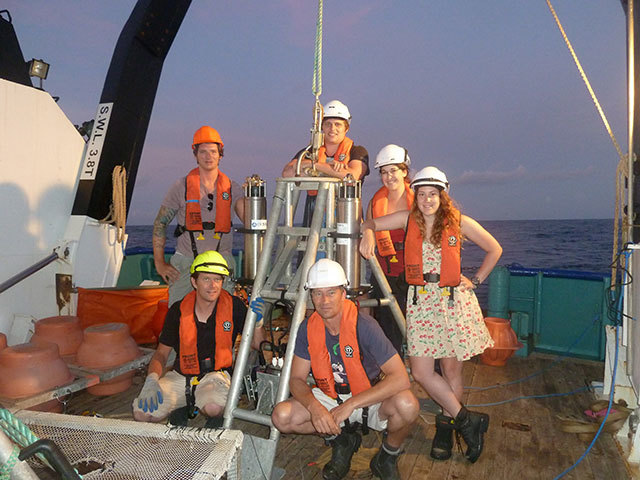
Fears have emerged about the effects of climate change in the deep sea after investigation by Aberdeen researchers offshore New Zealand.
A team of scientists from University of Aberdeen and New Zealand using [fyi the simpler the word, the better] bespoke technology developed by the university’s research facility, Oceanlab, found lower levels of sea life than expected.
Ultra-deepwater cameras and animal traps designed by Oceanlab were deployed during a 30 day expedition in the the New Hebrides Trench in the South Pacific. The footage from the first deep-sea biology expedition to the basin into depths between 2,000metres and 7,000metres revealed an environment of lower fish diversity and number than expected, with scientists considering climate change as a contributing factor.
“The voyage unearthed a wealth of new video and nearly 10,000 images which are providing great insight into these deep sea communities,” said Aberdeen University’s Dr Alan Jamieson, lecturer in Marine Biology.
“The team also obtained several extremely rare samples, of cusk eels, eel pouts, arrow-tooth eels and thousands of samples of small crustaceans which are now being curated in New Zealand and Australia.
“We set out to investigate whether the patterns of biodiversity in these medium depth trenches could be predicted by trends that we have observed in the really deep trenches that we’ve already studied elsewhere in the Pacific Rim.
“But what we found was an entirely different deepwater fish community. The fish we would always expect to see, the grenadiers, were completely absent.
“These new finds are a stark reminder that even the deepest parts of the world are intrinsically linked to the productivity of the surface waters.
“Should the current system change, it is highly likely to have significant cascading effects on the deep sea community. The deep sea is potentially a kind of silent victim in the era of a changing climate.”
The trip saw the 100th deployment of Oceanlab designed remotely operated camera and bait equipment on what was also the last voyage of a seven year series of projects called HADEEP – The Hadal Environmental and Education Partnership.
The expedition was primarily founded by the Fondation Total, part of Total Group, focused on protecting marine biodiversity.
You can watch the footage from the New Hebrides Trench expedition below: